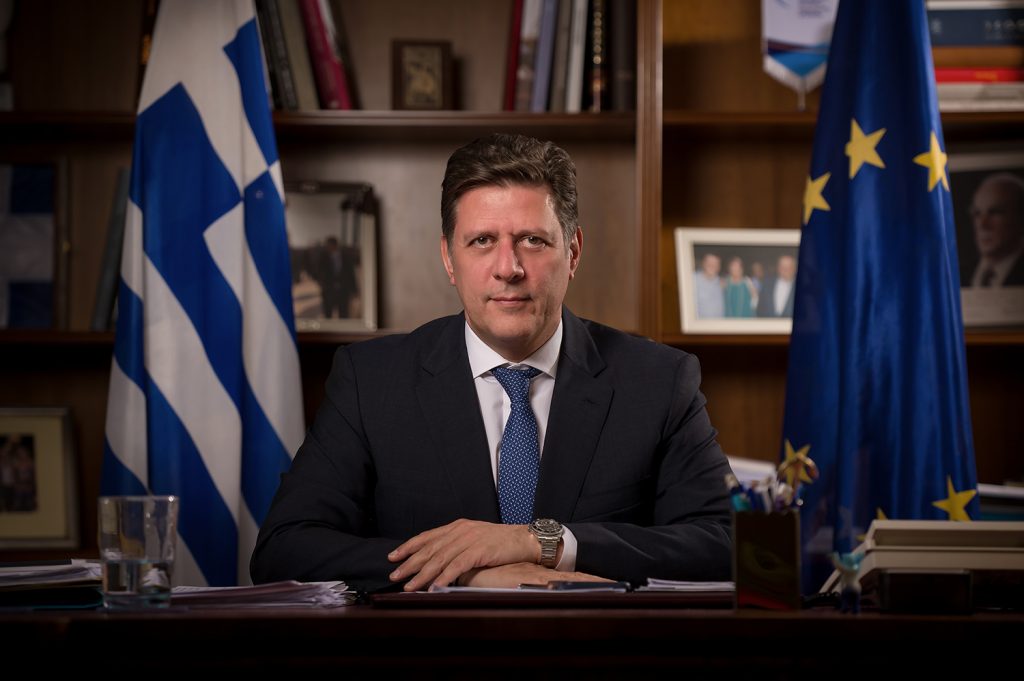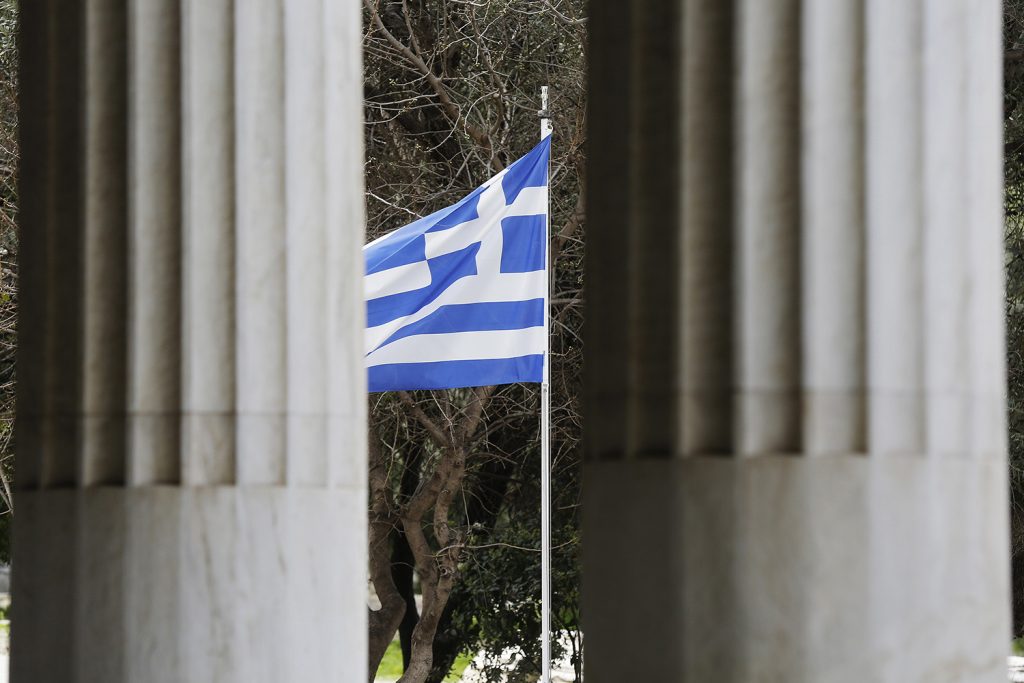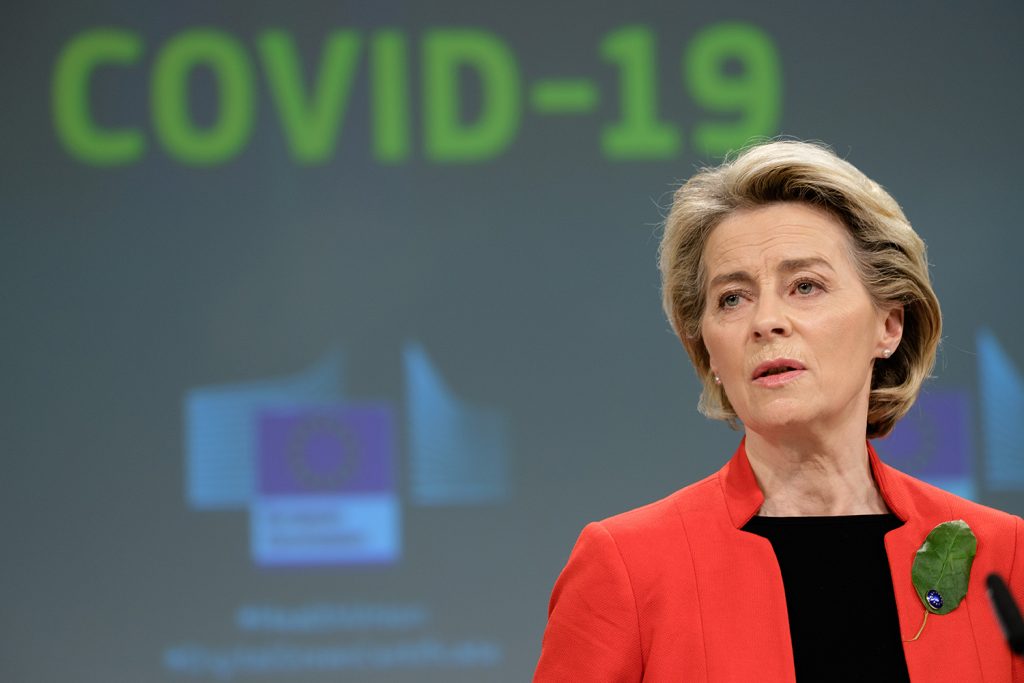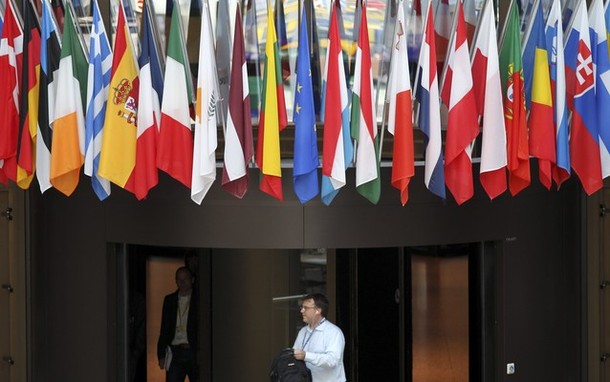Forty years after: How Greece can help usher in tomorrow’s Europe
The year 2021 marks forty years since the accession of Greece to the European Communities (EC), the most significant political development in the country’s post-World War II history. Accession helped Greece transition from being a fragile democracy with a segmented economy to becoming a case study of the transformative power of embracing liberal values.
Greeks from across the political spectrum rejected Euroscepticism in embracing the maximally federalist European vision in the 1980s. The economic crisis of the 2010s—caused by lingering domestic inertia and a global recession—triggered an unprecedented debate on the country’s fate within the European Union (EU). Nevertheless, despite enormous pain and serious economic tolls, once again Greece made the choice to opt for more Europe. In doing so, Greek society correctly foresaw what would only later become clear to other member states: Challenges that are increasingly related to the complex and interconnected nature of the European project increasingly demand shared solutions.
Today, despite the occasional shortcomings of its young and complex organizational structure, the EU is blazing the correct path forward in the face of the COVID-19 pandemic by providing for the well-being of all its citizens. The EU set up a transparent and common framework for the provision of approved vaccines across the continent, while also actively contributing to the funding of a much-needed global vaccination scheme (COVAX) through the “Team Europe” initiative. Even earlier than that, in July 2020, the EU took the unprecedented step of finalizing a targeted recovery fund totaling 750 billion euros through the issuing of common social bonds. Along with measures of temporary budgetary relaxation and the launching of the EU’s new Multiannual Financial Framework (MFF), the recovery fund will be crucial in sustaining employment and steering the course to a viable digital and green transition in the aftermath of the pandemic.

Despite missteps along the way, and through compromise, the EU passed an important test. It showed it possessed the necessary reflexes to adapt to adversity, taking initiative and overcoming its ingrained formalism and bureaucratic approach, with a healthy dose of political voluntarism among member states and timely recourse to the principle of subsidiarity. (Public-health policies only fall within the Union’s domain of a “supporting competence.”)
Nevertheless, European coordination during the pandemic is also a reminder of the multiple challenges that Europe faces as an entity—from climate change and humanitarian disasters to cybersecurity and border control. The announcement of a “geopolitical Commission” by European Commission President Ursula von der Leyen has been seen as a more than welcome development, especially in Greece. The EU needs political momentum for deepening its scope for tomorrow’s challenges. The long-awaited Conference on the Future of Europe, set to launch in May and wrap up by the spring of 2022, will provide an opportunity for more progress along these lines.
The political remains at the heart of the European project. Delivering better results to our citizens relies on advancing the European debate. And if today’s stakes are more global in nature, this only heightens the urgency of furthering the political consolidation of Europe from within.
Looking back at the course of Greek membership in the European Union, Athens’s preference has always been for the deepening of the scope of European integration as changing times demanded. Even as it transitioned from being a newcomer to a member of the old guard, Greece’s fervor for advancing political integration never diminished. Rather than seeing it as a finite goal, Greeks have insisted on the “revolutionary” nature of the European idea (as the founding father of the European perspective in Greece, Konstantinos Karamanlis, put it in 1979). The course of our own accession prior to 1981 shaped our support for the advancement of the European idea and buttressed our persistent openness to institutional novelty. After all, the Greek accession itself signified a paradigm shift for the (then) European Communities: reaching out beyond Western Europe, and prioritizing democracy and geopolitical security over a mere “coal quota.” Throughout its membership of forty years, Greece has embodied the Union’s democratic and geopolitical potential in the most salient way.
Lessons from Greek accession
The process that led to the accession of Greece to the EC would have been impossible without the initiatives of the charismatic Greek leader Konstantinos Karamanlis. The initial application for accession was signed in June 1959 under his premiership—an application that led to the historic Association Agreement between Greece and the European Economic Community (EEC) of June 1961. The agreement was “frozen” following the military coup of 1967 but reactivated after democracy was finally restored in July 1974. Following his own return to Greek politics and his election as prime minister, Karamanlis announced on June 12, 1975 his intention to seek full membership for Greece in the EEC. A staunch pro-European liberal, he foresaw in Greece’s European course a safe path to democratic stabilization amid growing geopolitical challenges.
For Greece, the mid-1970s were marked by the aggressiveness of NATO co-member Turkey, which had invaded Cyprus and been occupying its northern part since 1974, as well as by heightened anti-Americanism at home at a time when Southeastern Europe was still divided along Cold War lines. In response to this palpable sense of crisis, Karamanlis gave constructive voice to the dreams and aspirations of a large majority of Greeks by outlining a European path for his country, buttressed by a call for strengthening the alliance with the United States.

[Karamanlis] foresaw in Greece’s European course a safe path to democratic stabilization amid growing geopolitical challenges.
The geopolitical complexities of the Greek case were quite different from what the Treaty of Rome of 1957, or the first enlargement of 1973, had entailed for the EEC. Of course, the prospect of Greek membership involved for the EEC-9 welcoming an economically fragile and young parliamentary democracy; no less important, it signaled the advent of a new geopolitical dimension that had thus far been absent from EEC discussions. Nonetheless, the European Communities, initially under the mobilizing support of France and President Valéry Giscard d’Estaing, rose to the moment. The Greek accession proved to be an exceptional show of shared political and geopolitical commitment to securing democratic sovereignty and European values at a time when these were being most challenged.
The trajectory that led to the final Greek accession was far from linear. It involved pitched bargaining among the EEC-9 amid national elections in multiple countries and rotating EEC presidencies. Negotiations between the EEC and Greece were not easy either and called for the maturation and institutionalization of Greek bureaucracy and democracy.
The German presidency of the EEC is still remembered as particularly decisive in its support on the final road to Greek accession. But it’s the historic commitment of charismatic individuals that ultimately carried the day—Karamanlis and Giscard d’Estaing most notably, who also shared a strong personal friendship in addition to respective admiration for each other’s civilizations.
If this chapter of European history has a lesson to teach us, it is that all actors involved correctly understood the stakes of the moment. Karamanlis expressed the dreams and hopes of the Greek people for democratization at a time when the European Economic Community was evolving into something more than a mere economic union. While the foundations had already been laid with the Birkelbach report of 1962, it was the Greek accession (and later the Portuguese and Spanish accessions) that signaled a paradigm shift for the EEC, with democracy being placed at the center of the Community’s concerns. Karamanlis’s vision therefore particularly resonated. To a further extent, by accepting Greece within its ranks, the Community made the conscious choice to open up to geopolitical challenges through enlargement after a decade of introversion and stagnation—a decision that was to be repeated numerous times, especially in the aftermath of the Cold War.
Without diminishing the very concrete benefits from the common market, structural funds, and extraordinary feat of the monetary union, the democratic and geopolitical dimension of European integration defined Greek membership in the decades to come. In many respects, the Greek push for a more political and geopolitical Europe is neither incidental nor subject to the most recent diplomatic imbroglios. It reflects a deeply rooted idea about democratic ownership being the necessary élan vital of any political project in the long run. Greek history, be it ancient or modern, speaks to this. As members of a community of practices, values, and identity, Greeks have come to prize responsiveness to external threats. Optimizing democracy proved to be the best way of both legitimizing the project and defending sovereignty.
2021: becoming through action
With the worst of the COVID-19 crisis hopefully behind it, the European Union is preparing to embark on one of its most ambitious endeavors of democratic deliberation and mass mobilization: the Conference on the Future of Europe. Greece is categorically committed to seeing through this multilevel social dialogue, which echoes the deepest and truest democratic heritage of our shared European liberal culture. That is the true strength of the democratic process—a process that is by design capable of liberating the creative potential of any given political society and its individuals, in stark contrast to the moribund nature of authoritarian regimes across history and the globe.
In numerous instances with our EU counterparts, the Greek government has expressed its commitment to the creative potential of the forthcoming Conference. Greek delegations have consistently initiated discussions and exchanged views regarding the topics that the European Council could contribute, in parallel to the ones that will emerge from civil society and designated collective bodies.
In anticipation of the launch of the Conference and citizen input, the 2019-2024 EU Strategic Agenda’s four main priorities already provide a sound basis upon which to build. These are:
- protecting citizens and freedoms
- developing a strong and vibrant economic base
- building a climate-neutral, green, fair, and social Europe
- promoting European interests and values on the global stage
The unprecedented threats that the EU has faced for the better part of the last decade have shed light on how unavoidably intertwined citizen well-being, the economy, environmental protection, and geopolitical security are. Life and history demonstrate that when faced with real events, one should be prepared to transcend formalism. The European Commission’s strategy for a common vaccination-procurement scheme broke new ground in many respects, proving the vitality of the European Union in the face of imminent existential threats and the strategic necessity of far-reaching cooperation. The looming challenges bequeathed to the continent by the COVID-19 crisis, especially the socioeconomic impact and questions of solidarity and cohesion, make equally urgent a radical re-imagination of the future of Europe among its citizens.
The debate over the future of Europe has taken on an existential dimension that highlights the daunting stakes of the EU’s resilience, strategic autonomy, and place in a fast-changing and increasingly unpredictable world. Our starting point should be the needs and aspirations of European citizens. And, in the end, our goal has to be policies and institutions that make the EU relevant and efficient. The emphasis of the Conference should be on substance rather than form, enabling common policies and institutions that allow for coordinated action. It is essential, if we want the Conference to succeed, to strike the right balance between policies, on the one hand, and procedural discussions on the other.
So how should we strengthen the European Union and enhance its sustainability and place in the world? Essential means are the sine qua non of any viable political entity. A successful future for the EU will depend on the overall resources allocated to its existence. This is a question involving the finances of the EU and its multiannual budget, or MFF, but also the overall enhancement of the EU’s purview in the long run.

A successful future for the EU will depend on the overall resources allocated to its existence.
Starting the debate
As the Portuguese presidency of the Council of the European Union has already indicated, the reinvigoration of the European Social Agenda in the post-pandemic era is a worthy goal. The European Social Model is our distinctive blueprint for a cohesive and equitable society, which helps us reach non-European hearts and minds as well.
Economic integration should be furthered, most notably through the advancement of the European Economic and Monetary Union (EMU), despite the hardships and obstacles that the pandemic might have set in our path. The completion of the respective banking and capital-markets unions is only one of the initiatives we ought to take if we are to relaunch the productivity and competitiveness of the European economy in advance of future crises and in light of the consequences of Brexit. The sustainability of our economy as well as its influence in global markets largely depends on the EMU, which is still missing a series of appropriate budgetary instruments and necessary arrangements. Greece has welcomed the proposals put forward by France in this regard and is committed to backing further institutional innovations.
A transparent and functional regulatory framework is also needed for Europe to implement its long-awaited “dual transition”: the green-digital policy nexus embodies the EU’s ambitious vision for global leadership on innovation. This broad focus area encompasses a wide array of conflicting interests and social groups to which European governments and EU bodies have to be attentive. Greece is fully aware of the policy intricacies of the “dual transition” while also being fully committed to its productive capacities, which can mobilize economic sectors ranging from construction to agro-industry to transportation. Having enacted concrete public policies aimed at digital transformation and environmental optimization before the outbreak of the pandemic, Greece is more than inclined to partake in the EU’s visions for a Green Deal and Digital Decade.
Countering climate change is of the utmost importance for Europe and Greece. It is certainly no easy task, especially politically. Prime Minister Kyriakos Mitsotakis has pledged that Greece will cease producing lignite for electricity by 2028. The blue economy and the protection of the seas are two more strategic concerns for Greece, a Mediterranean nation. All this should also be important for Europe as a whole. A self-sufficient, sustainable circular economy, and the means to mobilize urban, rural, and island populations in the pursuit of it, will be crucial for success in the long run.
Similarly, the push for a digital transition epitomizes our political will to fully realize the productive potential and networked capacity of the European economy without sacrificing the integrity of vital supply chains.
A crucial precondition for these creative paradigm shifts is a full reckoning on the interaction of research, innovation, and education in responding to the European scientific and technological challenge as already put forth by the Lisbon Strategy. The gradual shift to policies for bolstering human capital has been a welcome long-term development in the Union’s funding policies. Horizon Europe and similar high-end research funding programs have placed the EU at the vanguard of scientific innovation. Nevertheless, more needs to be done if we aim to reshape our role and power on a global scale. The successful example of CERN could be replicated in the fields of health, pharmaceuticals, and especially biomedical sciences, with a similar European center becoming a central point of reference worldwide. These sectors have proved to be critical and subject to political manipulation outside Europe.
Getting to a holistic approach
The multitude of challenges that EU member states face domestically cannot be detached from the international position of the EU as a global actor, the interconnectedness and synergy of its constitutive elements (from national governments to EU bodies and of course national populations), and ultimately the overall resilience and performance of the system as a whole. The current moment calls for an integrated conception of policy that captures the larger picture without necessarily limiting itself to strict dichotomies such as national/European, private/public, etc. This holistic approach is another challenge the Conference and its participants ought to face.
This means grasping that the vitality of the economy and market is actually reliant on the vitality of liberal, democratic processes, and vice versa. National sovereignty is directly linked to the strength and security of the European project, and vice versa. And one cannot successfully address domestic challenges while closing one’s eyes to external threats and challenges, and vice versa.
The pandemic revealed our vulnerabilities in regard to supply chains of medical equipment and pharmaceuticals. It also brought forth our citizen’s expectations for more coordinated initiatives in the domain of public health, even though the latter remains outside the Union’s exclusive competence. The political and financial mobilization of private-sector investments is therefore an urgent priority, as are standardized guidelines with respect to civil-protection structures and protocols. Both the common vaccination-procurement scheme and cross-border cooperation during the pandemic provide valuable precedents of practice and coordination among member states. At the same time, the pandemic made more than evident the importance of coordinated actions and stances relative to third parties. If this wasn’t a formative moment for the geopolitical consolidation of the EU, it at least led us to understand the role that the Union needs to play through its participation in global governance.
The permeability of national borders to digital and hybrid threats orchestrated by malevolent third parties has further underlined the futility of isolated responses. As already stated in the EU’s 2019-2024 Strategic Agenda, the protection of our citizens requires shared mechanisms and coordinated stances against external threats.
The COVID-19 crisis undoubtedly highlighted the need for an integrated understanding of European strategic autonomy as equally embracing critical supply chains, economic functionality, resilient administration, and coordinated external policy. If we are to effectively address the overall strength and resilience of the EU system of governance, it will require not only engaging in a values-oriented discussion of solidarity among member states but also learning lessons in how to achieve efficiency and functionality.
The EU’s successful handling of the Brexit negotiations, meanwhile, constituted a diplomatic achievement in which member states acted in unison and held rank—a show of well-crafted and coordinated actions that demonstrated the efficiency and diplomatic weight of the Union in its areas of competence.
Our own experience at the Greek-Turkish land border of Evros in February and March 2020 also proved to be a critical occasion in which the Union acted in full support of Greece and in accordance with the principle of subsidiarity in a domain of shared competence. Greek law enforcement protected Europe’s external borders against the hybrid threat that Turkish authorities posed through the unprecedented instrumentalization and exploitation of thousands of undocumented migrants. At the same time, the institutional support provided by the EU—in the form of political statements and visits by its three presidents and support by Frontex agents on site—was invaluable.
This episode should serve as a precedent for future practice. While the threat was efficiently repelled in a coordinated manner, it speaks to the broader matters of migration and border protection. These are primarily shared European challenges, with major consequences for the Union’s potential for resilience and geopolitical clout. An integrated Europe needs a common answer to the complex issues of migration and asylum. It also needs sustainable and holistic planning to ensure efficient and transparent law enforcement, shared infrastructure and management, sufficient political support and international cooperation, and effective development policies. All member states must recognize their involvement in and responsibility for success on these fronts. The ongoing discussions regarding the new Pact on Migration and Asylum will be a test for our shared understanding of the Union’s integrated role.
The Turkish aggressiveness that Greece has been confronting in the Aegean and Eastern Mediterranean recall geopolitical complexities and threats that Greeks were dealing with before their accession to the EC. Our resilience in defending liberal democracy, territorial integrity, and the rule of law—domestic and international—ultimately contributes to the security of Europe and the protection of its core values and interests against foreign interference and revisionist powers.
As our own course within Europe has reached the point of institutional maturity, we retain the enthusiasm of dedicated pro-Europeans but also embody the realism of a seasoned member state. We demand the possible, at the right time, for the protection of both Greek and European interests at our external borders.
Giving voice to the future
We expect that our citizens will take part in the forthcoming debate about the future of Europe openly, transcending the unavoidable rigidity of legal categories involving competencies and jurisdictions. In doing so, we should be prepared to question our own preconceptions. In fighting the pandemic, we overcame reservations out of necessity—a significant step that we should acknowledge. Division and national introversion in the face of future common challenges might send a wrong signal that the Union is selective in its concern for the protection and well-being of its citizens. Recurring external threats that affect particular member states will likely also prove critical for the future of the Union. Instead of viewing these threats merely as insular matters, European citizens and officials should see them as trials for the Union’s viability as a whole.

Europe cannot afford a truncated perspective or equivocations on its global role and geopolitical responsibilities.
The European Union has evolved geopolitically in many respects. Strategic autonomy is the guiding principle for our discussion on its geopolitical future. The Common Foreign and Security Policy provides a solid basis for policy coordination and Permanent Structured Cooperation (PESCO) schemes are a crucial alternative for quick, effective, and targeted responses to external challenges. We fully support initiatives such as the European Democracy Action Plan, the Digital Services Act, and the finalization of a European Strategic Compass, with an eye to the eventual fruition of common defense projects.
Such a flexible and practical understanding of the Union’s involvement in countering and deterring external challenges should not lead us to complacency or lassitude regarding the political picture. As we are about to discover through a true democratic deliberation with our citizens, Europe cannot afford a truncated perspective or equivocations on its global role and geopolitical responsibilities.
Forty years ago, Greek accession to the European Communities was part of a shift in which Europeans started thinking of themselves as a geopolitical entity. Today, as the European Union is reinvigorating its partnership with the United States and working toward enlargement in the Western Balkans, with the significant strategic support of Greece, the time is ripe for articulating our hopes and expectations for the emergence of a coherent, geopolitical European Union.
Miltiadis Varvitsiotis is the Greek alternate minister of foreign affairs for European affairs.
Image: A general view of the Embassy of Greece in Washington, D.C., on April 29, 2020 amid the Coronavirus pandemic. In America, confirmed COVID-19 cases surpassed 1 million as economic data showed a 4.8% contraction in the first quarter of 2020 Ð the biggest quarterly contraction since the financial crisis. (Graeme Sloan/Sipa USA)